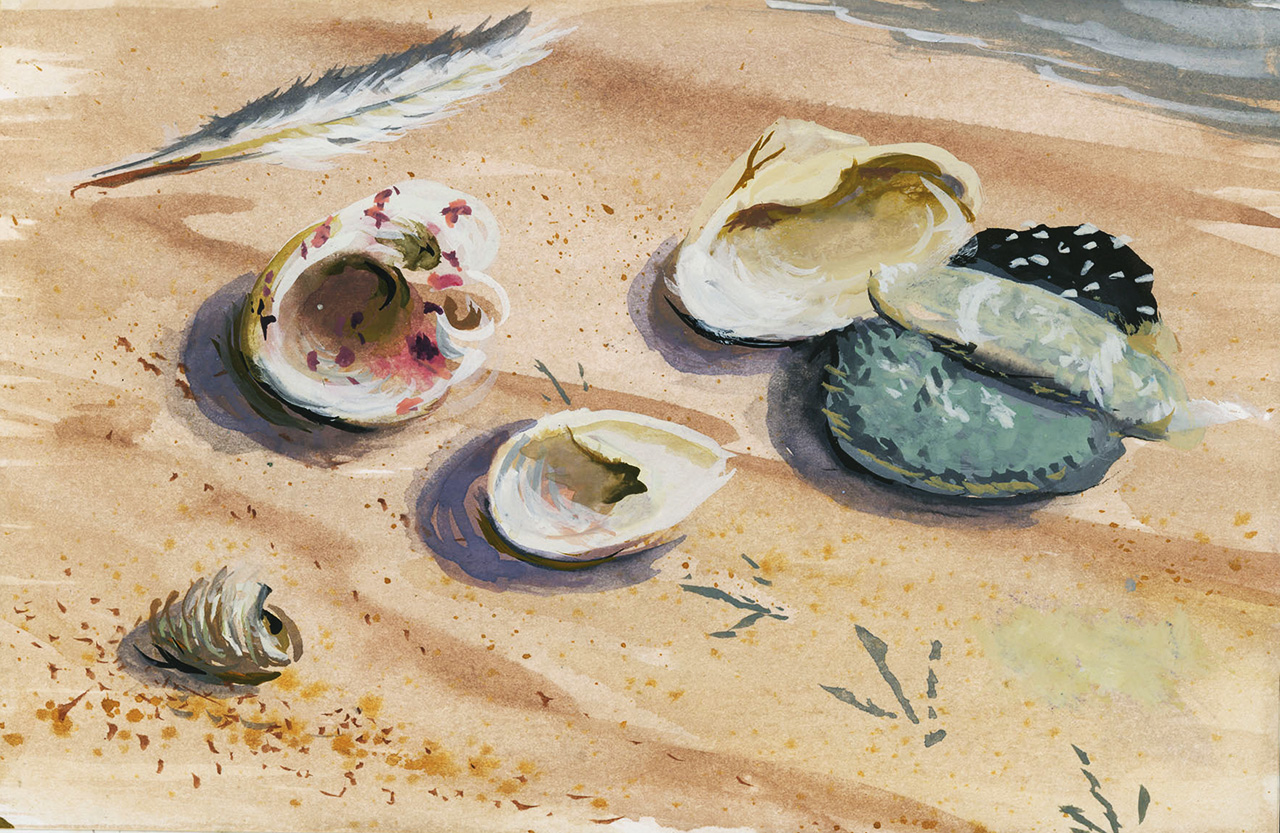

Wild Edible Plant Excursion on Fishers Island
June 30 @ 10:00 am - 12:00 pm
Join us for a two-hour ramble through some of the shaggier parts of the Island with naturalist and wild food enthusiast, Russ Cohen to encounter and learn the comestible virtues of at least eighteen species of edible wild plants.
Species expected to be spotted include Black Elderberry, Common Milkweed, Black Locust, Sassafras, Burdock, Chicory, Autumn Olive and Japanese Knotweed. We may even have an opportunity to get down to the shoreline to see some coastal plants like Beach Pea and Sea Rocket. Keys to the identification of each species will be provided, along with info on edible portion(s), season(s) of availability and preparation methods, as well as guidelines for safe, ethical and environmentally-responsible foraging.
Russ will provide handouts and offer some samples of foraged goodies made with wild edibles for people to sip and nibble on.
When: Monday, June 30, 2025
Time: 10 a.m. to approx. 12 noon
Place: Meet at the Museum
Limited to 30 people. To assure a spot, please sign up by contacting the Museum by phone (631-788-7239) or by e-mail (info@fergusonmuseum.org)
(Please note also the related talk “Nibbling on the Wild Landscape of Fishers Island” that Russ is giving on June 29, 2025 at the Museum.
 Russ Cohen, naturalist and wild foods enthusiast, grew up in Weston, Mass., where he spent much of his free time in the woods, thereby cultivating a strong spiritual connection to nature. Russ’ first formal exposure to edible wild plants occurred while a sophomore at Weston High School, where he enrolled in an “Edible Botany” mini-course offered by the high school biology department. The course taught him about two dozen edible species that grew around the high school grounds, and the class finished with a “big feed”: a communal meal prepared from these plants, at the end of the course. Russ got turned on to the subject, went to the local library and took out every book he could find on the topic, taught himself over fifty more species, and, in his senior year of high school (1974), he taught the Edible Botany class he had taken as a sophomore. Russ added edible wild mushrooms to his teaching repertoire in 1989 after returning home from a trip to the Soviet Union, where he caught the mushroom hunting bug from the Russians.
Russ Cohen, naturalist and wild foods enthusiast, grew up in Weston, Mass., where he spent much of his free time in the woods, thereby cultivating a strong spiritual connection to nature. Russ’ first formal exposure to edible wild plants occurred while a sophomore at Weston High School, where he enrolled in an “Edible Botany” mini-course offered by the high school biology department. The course taught him about two dozen edible species that grew around the high school grounds, and the class finished with a “big feed”: a communal meal prepared from these plants, at the end of the course. Russ got turned on to the subject, went to the local library and took out every book he could find on the topic, taught himself over fifty more species, and, in his senior year of high school (1974), he taught the Edible Botany class he had taken as a sophomore. Russ added edible wild mushrooms to his teaching repertoire in 1989 after returning home from a trip to the Soviet Union, where he caught the mushroom hunting bug from the Russians.
Russ received his bachelor’s degree in land use planning from Vassar College in 1978, and received a masters in Natural Resources and a law degree from The Ohio State University in 1982. Until retiring from state service, Russ was employed by the Riverways Program (now part of the Division of Ecological Restoration) of the Mass. Department of Fish and Game since 1988, and served as its Rivers Advocate from 1992 until June of 2015. Other past employers have included the Nature Conservancy, the Land Trust Alliance, The Hillside Trust, a land trust in Cincinnati, Ohio, and the Massachusetts Audubon Society.
Since his retirement in June 2015, while continuing to offer walks and talks on foraging for wild edibles, Russ is now playing the role of Johnny Appleseed for native edible species. He has set up a nursery (near his childhood home in Weston, MA) where he is growing over 1,000 plants, representing more than a third of the more than 190 species native to Northeast ecoregions that are edible by people. Many of these plants were propagated from seed Russ gathered himself. Russ is then collaborating with land trusts, municipalities, state and federal agencies, schools and colleges, tribal groups, organic farms and others, to plant plants from his nursery on appropriate places on their properties. You can learn more about this endeavor in the article Russ Cohen’s Wild Edible Adventures, by Cathy Walthers, which ran in the Summer 2018 issue of Edible Boston Magazine; Meet the ‘Johnny Appleseed’ of Edible Native Plants, by Barbara A. Schmitz, which ran in the Spring 2019 issue of the Wild Ones Journal; a March 2020 video podcast interview with Kim Eierman of EcoBeneficial; or, most recently, the profile of Russ and his native edible plant propagation and planting that ran in the January 2024 edition of the Massachusetts Horticultural Society’s The Leaflet newsletter.

